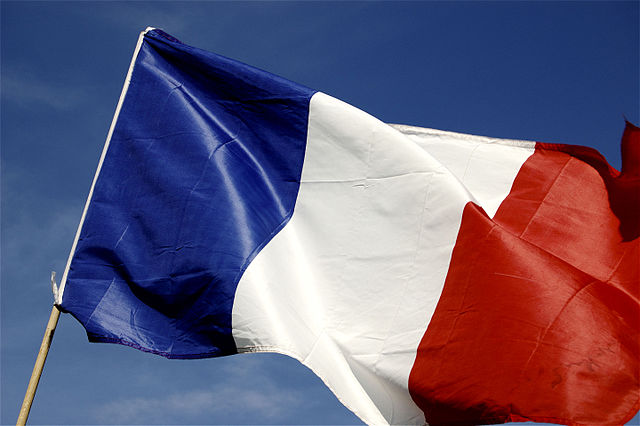
As we prepare for the 39th Annual Course of the International Association of Libraries, which will be presented virtually from Toulouse, France in October, it seems appropriate to take a look at current legal issues in France. There are numerous topics to choose from – a deep dive on the pass sanitaire[1] was something I seriously considered but perhaps I’ve got a bit too much COVID fatigue because I couldn’t bring myself to commit to an entire post on COVID. Instead, I’d like to look at how presidential elections happen in France. We have some time before elections begin in April of 2022 but campaigning has been in the spotlight of various French publications for several months now and I, for one, enjoy taking a look at how elections differ around the world.
At the start of the Fifth Republic, the president was elected by an electoral college comprising members of Parliament, the general councils and assemblies of the Overseas Territories, and elected representatives of municipal councils.[2] Just the municipal councilors (which included both county and town representatives who had been elected directly) numbered around 80,000.[3] While Charles de Gaulle won the 1958 election, his indirect victory at the hands of the electoral college did not give him the legitimacy he hoped for and he began to strategize new ideas for future presidential elections.[4] In 1962, he proposed a constitutional referendum to allow for direct presidential elections by universal suffrage.[5] It was his hope that direct elections would imbue the president with a stronger national mandate and a degree of legitimacy to challenge the National Assembly.[6] Since 1962, the president has been elected directly by the people of France in a two-round election.[7]
So what does a two-round election entail? Basically, the two-round system is a voting method used to elect a single candidate, where voters cast a single vote for their preferred candidate.[8] The election proceeds to a second round only if, in the first round, no candidate has received a simple majority (more than 50%) of votes cast, or at least some other prescribed percentage.[9] Since 1962, every presidential election in France has gone to the second round.[10]
Until 2002, the term for a French president was 7 years. In 2000, a constitutional referendum was passed limiting the presidential term to five years.[11] Thus, when Jacques Chirac won the presidency in a landslide second round win against Jean-Marie Le Pen in 2002, his term lasted until 2007.[12] This is significant because of how France’s government is set up. Previous to 2002, there had, on occasion[13], been issues of cohabitation. Cohabitation is a system of divided government that occurs when the president is from a different political party than the majority of the members of parliament.[14] Under these circumstances, the president is forced to choose a prime minister that the majority party in parliament will accept.[15] France has not had to deal with cohabitation in the government since 2002 because the five-year presidential term lines up with the general election for parliament.
Looking a bit more closely at the 2002 election can be useful for viewing the advantages and disadvantages of a two-round election. Much has been written about this election because no one anticipated that the far right candidate, Jean-Marie Le Pen of the Front National, would make it to the second round of voting.[16] But he did. And in doing so, the country found itself voting for either an extreme right candidate or Jacques Chirac, running for a second term after having previously served as prime minister and mayor of Paris.[17] It had originally been anticipated that Chirac’s main competition in the second round would be the prime minister, Lionel Jospin, a member of the Socialist party.[18] Because Le Pen managed to get more votes than Jospin in the first round, he was the one to face Chirac in the run-off and as a protest, almost all French political parties called for their supporters to vote against Le Pen, even the socialists who were considered arch-rivals of Chirac’s party.[19] Due to this protest, Chirac won by the largest landslide in a French presidential election, with over 82% of the final vote.[20] The Front National, which has attempted to rebrand itself under the new name of Rassemblement National (National Rally) once again made it to the second round of elections in 2017 and is looking to be competitive once more in the 2022 elections.[21] The party is now fronted by Le Pen’s daughter, Marine Le Pen. Chirac’s victory in 2002, much like Macron’s victory in 2017, may not be so much a mandate for what either man stood for as much as a repudiation of the far right in French politics.[22]
With this knowledge in hand, we can all look to the 2022 elections with a mix of anticipation and wariness. Will the RN be able to finally pull off a presidential victory? Can Macron keep his challengers at bay for a second term? Starting with the first round of voting on 10 April 2022, we’ll be able to watch what happens and after the second round of voting on 24 April 2022, we’ll have an answer…and perhaps even more questions about France’s political situation. For now, I am looking forward to the Toulouse conference, in which I am sure we will hear more about France’s political system.
Heather Casey
Georgetown University Law Center
International & Foreign Law Reference Librarian & Adjunct Professor of Law
Washington, D.C.
This Blog contains entries by members of the International Association of Law Libraries on issues germane to the Association’s areas of focus. Views expressed in an individual entry only represent the views of the author.
[1] https://www.gouvernement.fr/en/coronavirus-covid-19.
[2] Constitution du 4 octobre 1958 – Sénat.
[3] Stanley H. Hoffman, “The French Constitution of 1958: The Final Text and Its Prospects,” in 53 Am. Pol. Sci. Rev., pp. 332-357 (1959).
[4] Ben Clift, “The French Republic at Fifty: The Changing Face of French Politics and Political Economy,” in Modern & Contemporary France, pp. 383-398 (2008).
[5] Id.
[6] Id.
[7] Susana Galera for the Council of Europe, Judicial Review: A Comparative Analysis Inside the European Legal System, p. 71 (2010).
[8] “Two-Round System,” Electoral Reform Society, electoral-reform.org.uk/voting-systems/types-of-voting-system/two-round-system/.
[9] Id.
[10] Ben Clift, “The French Republic at Fifty: The Changing Face of French Politics and Political Economy,” in Modern & Contemporary France, pp. 383-398 (2008); Britannica, “Fifth Republic,” https://www.britannica.com/topic/Fifth-Republic-French-history.
[11] Conseil Constitutionnel, “Proclamation des résultata du référendum du 24 septmebre 2000, https://web.archive.org/web/20090209223333/http://www.conseil-constitutionnel.fr/conseil-constitutionnel/francais/les-decisions/depuis-1958/decisions-par-date/2000/resultats-referendum-2000/decision-resultats-referendum-2000-du-28-septembre-2000.485.html.
[12] Anne Etienne, “Do Election Results Represent People’s Political Ideologies? A Study of the 2002 French Elections,” in 5 French Politics, pp. 20-32 (2007).
[13]Periods of cohabitation in the French government occurred in 1986-1988, 1993-1995, and 1997-2002. Robert Elgie, “’Cohabitation’: Divided Government French-Style,” in Divided Government in Comparative Perspective (2001).
[14] Id.
[15] Id.
[16] See Anne Etienne, “Do Election Results Represent People’s Political Ideologies? A Study of the 2002 French Elections,” in 5 French Politics, pp. 20-32 (2007); Eric Bélanger et al., “Party, ideology, and vote intentions: Dynamics from the 2002 French Electoral Panel,” in 59 Pol. Res. Quarterly, pp. 503-515 (2006); John Gaffney, ed., The French Presidential and Legislative Elections of 2002 (2004).
[17] Anne Etienne, “Do Election Results Represent People’s Political Ideologies? A Study of the 2002 French Elections,” in 5 French Politics, pp. 20-32 (2007).
[18] Id.
[19] Id.
[20] Id.
[21] Norimitsu Onishi, “On the Scrappy Fringes of French Politics, Marine Le Pen Tries to Rebrand,” in New York Times, May 16, 2021, https://www.nytimes.com/2021/05/16/world/europe/france-le-pen-election.html.
[22] Clea Caulcutt, “French far right still all-in on Marine Le Pen,” Politico EU, https://www.politico.eu/article/le-pen-far-right-macron-france-election/; “Marine Le Pen fails to make gains in French local elections,” Politico EU, https://www.politico.eu/article/le-pen-national-rally-france-election-macron-la-republique/.
